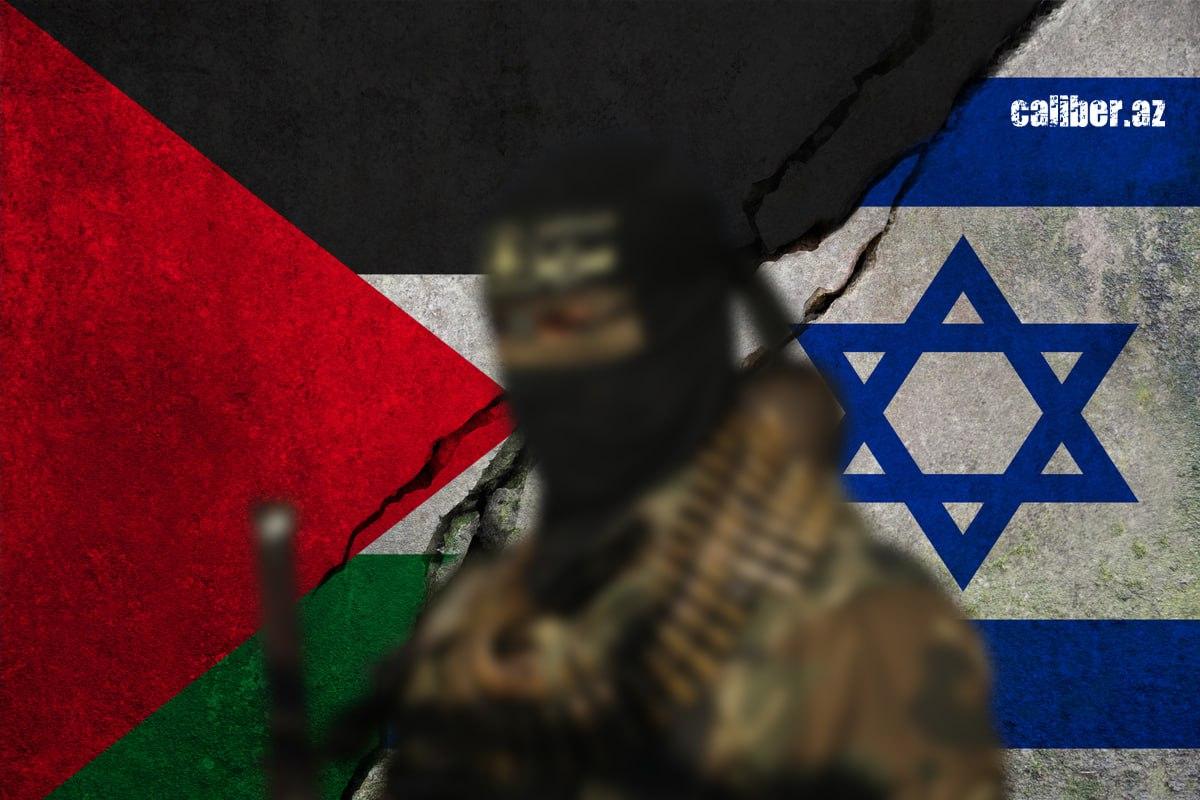X-hour: Will Hamas agree to the release of Israeli hostages? Expert insights on Caliber.Az
A senior Israeli official has announced "significant progress" in negotiations with the Palestinian group Hamas over a potential hostage deal. According to the Israeli news portal Ynet, the official emphasized that key details of the deal are being kept confidential to prevent political interference that could jeopardize the talks.
The official added that the heads of Israel's intelligence agencies, Mossad and the Shin Bet (Israel Security Agency), briefed the Cabinet on Hamas's newfound willingness to reach an agreement—something that had previously seemed unlikely. "The assessment is that the agreement can be reached during several weeks," the official said. He attributed Hamas's shift in stance to Israel's ongoing military strikes and the upcoming inauguration of Donald Trump as U.S. President next month, the news outlet reported.
This is an intriguing and hopeful update, especially in light of reports that an Israeli delegation travelled to Qatar on December 16 evening for talks on a potential agreement for the release of hostages. Can we conclude that Hamas is beginning to make concessions? However, even if all the surviving Israeli hostages are freed, does this mean that the leadership of the Jewish state will tolerate Hamas’s continued presence and existence in the Gaza Strip?
This situation is being analyzed by renowned regional experts for Caliber.Az.

Serhiy Danilov, the Deputy Director of the Center for Middle Eastern Studies, noted that Hamas leadership is responding to shifts in the regional dynamics.
"The change in Hamas's position has been influenced not only by the upcoming inauguration of Trump but also by the recalibration of regional power after the fall of Assad's regime. Paradoxically, the victory of ideologically aligned rebels from HTS in Syria did not cheer Hamas leaders. It turns out that for them, Assad's defeat marked the collapse of hopes for Iranian support in the near future, as well as a significant strengthening of Israel’s position in negotiations with Arab partners. In other words, HTS leader al-Julani has played a role in driving Hamas’s political stock down," the expert explains.
Danilov emphasizes that Israel has repeatedly stated it will not allow Hamas to regain power in the Gaza Strip.
"Netanyahu has repeatedly declared that the goal of the operation is the complete eradication of Hamas in Palestinian territories. At the same time, at numerous rallies, Israeli citizens have called on the government to focus on securing the return of the captured hostages and the bodies of those who died in captivity. The issue of returning hostages, against the backdrop of the fading combat operations in Gaza and southern Lebanon, has now come to the forefront. This means that for Netanyahu, the timing is right to extract the maximum from the deal," Danilov concludes.

Israeli analyst, political figure, and public activist David Eidelman stated that, regarding hostages, there is never a clear-cut opinion even from one particular person in Israel.
"Most often, this is the case. Why? Because it is believed that a firm position on the hostage issue means that either the person has a mental problem or lacks a heart. Therefore, the hostage issue is very complex.
On the one hand, in Israel, since the founding of the state, there has been a principle that is one of the most important principles of the Israeli ethos: the principle of 'we do not abandon our own.' We do not abandon our own, unlike, for example, the Soviet army, which used to say 'we have no prisoners of war, only traitors.' In Israel, on the contrary, it is asserted that from the moment a soldier is captured, all his obligations to his country cease. He may disclose any information. All codes and related matters should be changed by the military because it is unreasonable to expect him to withstand torture. In other words, all of a person's obligations to the country end at that moment—what begins is the country's obligations to the person," the expert explained.
According to him, today there are two positions.
"One is the position of public opinion, led by the families of the hostages, who are protesting, and the other is the position of the state, Netanyahu's government, which is being accused of not doing enough to bring the hostages back.
On one hand, Israel has struck a severe blow to its enemies. If we look at what happened after October 7th of last year, we can see that we are now in a completely different reality. Over the past fourteen and a half months, Israel has managed to turn the situation around completely. Fourteen months ago, we were facing a situation where Israel was fighting on multiple fronts, and it was believed that an attrition war had been declared against it, one that threatened its very existence. If there were any norms for conducting war, they were sharply violated.
But here is what we have today: Hezbollah has not only lost its entire upper echelon, including Sheikh Nasrallah, the leaders of the army, the organization, the terrorist leaders, and the IRGC officers who were overseeing them—practically the entire officer corps and all the more or less well-known militants have been eliminated. A severe blow has been dealt to it.
As for Hamas, virtually the entire top tier of its military organization has been destroyed. These were the individuals who have been making decisions for the past 15 years.
If we take Assad's Syria, which was the link between Hezbollah and Hamas, it no longer exists, and we don't know what will replace it. In general, this entire chain that Iran boasted about—Syria-Hezbollah-Hamas—has collapsed after Syria was removed from the equation. Now, Iran's only remaining border for contact with the world is with Armenia. Everything has changed drastically. And now, Donald Trump is coming into the picture. There is a joke circulating that he will impose sanctions on Israel if it doesn't strike its enemies with enough force. And Trump doesn't hide how he plans to deal with Iran.

He made a statement that if Hamas does not agree to a deal, the gates of hell will open before them. However, it is unclear exactly how he plans to do this. One hint might be the fact that Hamas is not only in Gaza but is also hiding elsewhere. For example, it is being sheltered by Qatar. The possibility of American infantry from the nearby military base in Saudi Arabia suddenly rushing to Qatar and simply taking the entire Hamas leadership there, with bags over their heads, is quite feasible," the analyst predicts.
According to him, it may seem like Israel is discussing a hostage exchange, but it's important to remember that it is dealing with criminals.
"Criminals have their own logic and priorities. At the last moment, they might pull an unexpected move or decide they can blackmail the other side.
If criminals cared even a little about their own well-being, they wouldn't have carried out the events of October 7th. In the end, the deaths of Hamas's entire leadership, Hezbollah's entire leadership, the fall of Assad's regime, and the strikes on Iran—all of this is a response to what happened on October 7th and after. In the Middle East, in our region, there is such a thing, such a concept, as conventional actions. For instance, as a Bedouin from the Negev once explained to me—look, we smuggle drugs and prostitutes into Israel, but we don't smuggle weapons. I asked why. He said, no, once we start smuggling weapons, people will take us much more seriously, and we won't be able to make money off drugs and prostitutes. Now, as strange as it may sound, October 7th was a radical violation of convention. I mean, the mass capture of Israeli hostages and the killing of so many Israelis, especially civilians from kibbutzim who were nearby and who, in fact, believed in building relationships with Gaza Palestinians and invited them to work. That’s why Palestinians knew exactly where to go, what to do, and who to kill. It was a violation of the convention. And behind that violation come today's radical actions.
In other words, the position known as zero tolerance—zero tolerance for any violations, any threats—that is what Israel is demonstrating now. However, I want to say that it is impossible to eliminate Hamas completely. It's like trying to rid a city of mice completely—you can't do it. There will always be some mice or rats left somewhere, but the main thing is that they don't interfere with people's lives. However, it is possible to eliminate Hamas as a political force in the Gaza Strip. That is the goal that should be pursued," concluded Eidelman.








